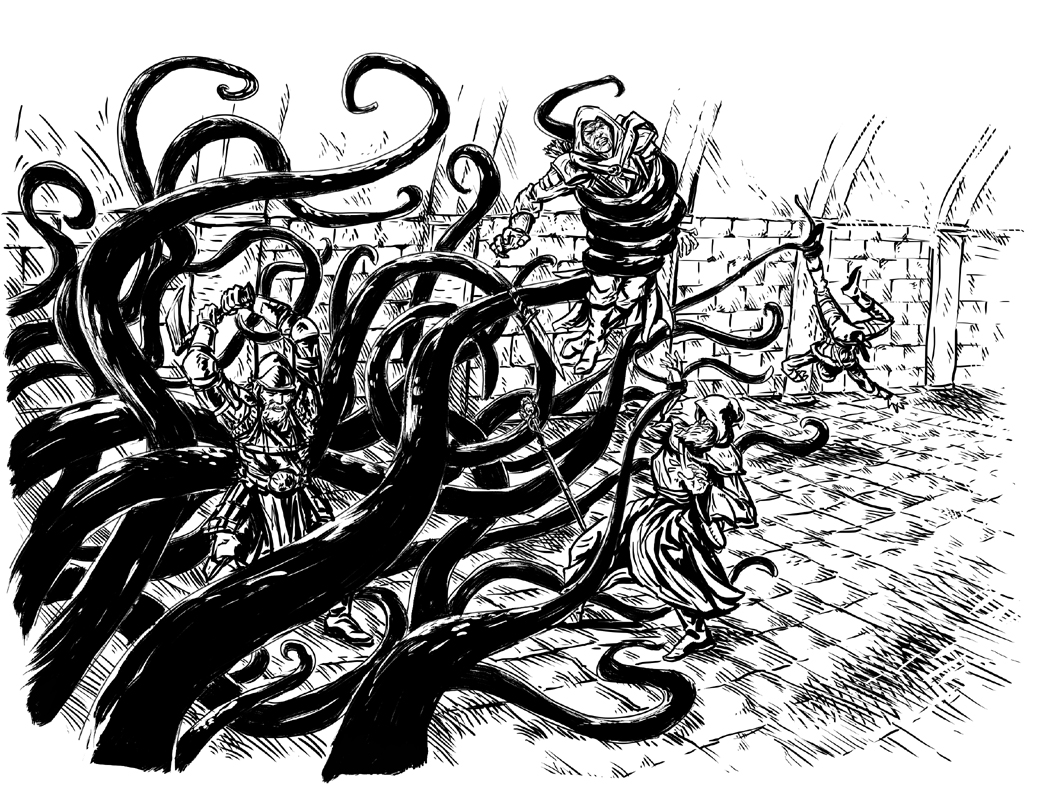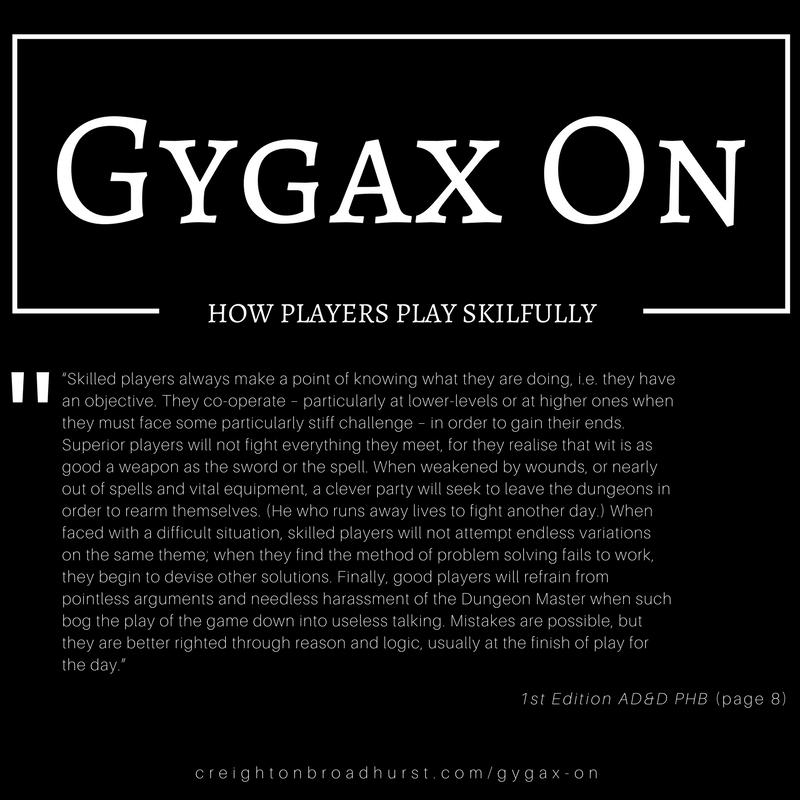It’s relatively easy to play a roleplaying game. Playing the same game skilfully, though, is somewhat trickier.

As well as knowing the rules, you’ve got to work together as a team to achieve a set goal. Sometimes, you end up playing with people you barely know so you don’t know how they’ll react in any given situation. Other times, you play with friends you know very well so you can predict how they’ll act. For example, if one of my friends is playing the cleric I know that unless it is suicide he’ll go to a fallen comrade’s aid. Another of my friends playing a cleric in the same situation probably wouldn’t.
I’ve also been thinking recently about how and why dungeon expeditions can go horribly wrong. It seems to me that when communication breaks down or when players don’t really have a clear vision of what they are trying to achieve things can go spectacularly and impressively wrong. (Or even worse, they plan and prepare for one objective and then wander off in search of another!) Of course, sometimes luck is just not on you side but other times adventuring parties seemingly do their very best to self-destruct!
So what did Gary have to say?
“Skilled players always make a point of knowing what they are doing, i.e. they have an objective. They co-operate – particularly at lower-levels or at higher ones when they must face some particularly stiff challenge – in order to gain their ends. Superior players will not fight everything they meet, for they realise that wit is as good a weapon as the sword or the spell. When weakened by wounds, or nearly out of spells and vital equipment, a clever party will seek to leave the dungeons in order to rearm themselves. (He who runs away lives to fight another day.) When faced with a difficult situation, skilled players will not attempt endless variations on the same theme; when they find the method of problem solving fails to work, they begin to devise other solutions. Finally, good players will refrain from pointless arguments and needless harassment of the Dungeon Master when such bog the play of the game down into useless talking. Mistakes are possible, but they are better righted through reason and logic, usually at the finish of play for the day.”
AD&D Player’s Handbook (page 8), Gary Gygax
Gary hits upon several of my gaming touchstones in this quote—organisation, cooperation and communication. He also, interestingly, breaks down skilled play into two distant sections:
- In-game tactics and planning.
- The actual behaviour of the players around the table.
I’ve thought for a long time players need to cooperate to win and that blindly hitting everything isn’t normally the best way forward. I hadn’t, however, factored the players’ actual behaviour into the mix. I’ll be looking more closely at my and my friends’ gaming styles in the near future—I wonder how many of us are truly skilled players?
Are You Skilled?
Are you a skilled player? Do you disagree with Gary? Let me know, in the comments below.

We’ve just started a new low-level campaign with one of our groups and I’m finding Gygax’s words to be particularly useful. We have to remember that we’re level 2-3 and we can’t just bash our way through every challenge blindly, like you do in an MMO. One PC died last session (like, full-on dead, not just unconscious) and it was the result of a non-cooperative player at the table.
It is an interesting thing to really sit back and observe about your friends/players. We have two groups, alternating weekends between two campaigns, and though the core is the same (myself, my husband, his bestie, my bestie) the rest of the members fluctuate seasonally.
The “on” weeks group tends to be the much more experienced group of players with the well-seasoned DM, and they’re a little jaded I think. Often, after decades of gaming I guess, they forget that sometimes finesse is more important than how hard you can hit something. Several near-TPK events can be traced back to an player deciding to just MMO the boss’ fortress or charge blindly into a challenge as if nothing in the world will EVER be harder/higher level than our party can reasonably stand.
The “off” weeks usually contains more junior members (people who have only just started gaming within the past year or two) and because everything is so new (and scary – haha) they seem to think about challenges a bit more. They’re more willing to run away (not worried about losing face, I guess?) to regroup.
Part of that could be related to class choices (in the on week, we’ve got several Paladins in a Wrath of the Righteous campaign) but it is definitely interesting to take a look at our friends and analyze their decisions/choices in this light. A lot of the experienced ones SHOULD be more “skillful” than they are, but we gotta take into account their actual behavior… Food for thought, going forward. Thanks for the article!